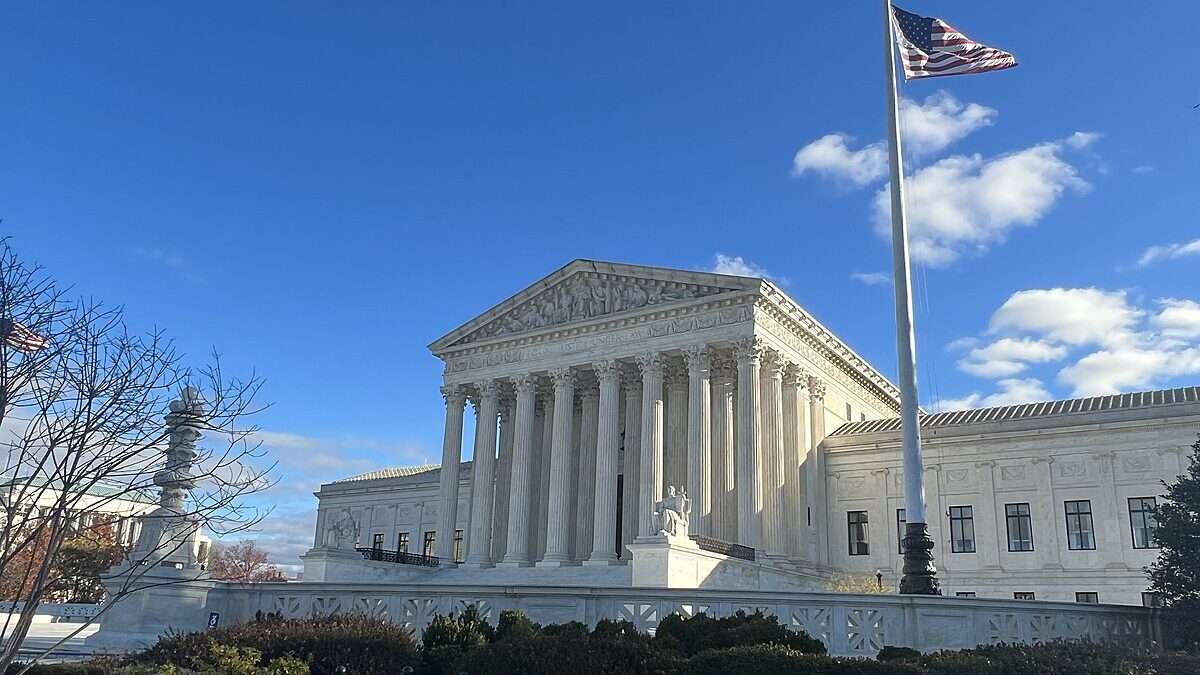
Imagine that you’re a judge and two men, a shoemaker and a soldier, come before you to have a dispute settled. The shoemaker accuses the soldier of assaulting him. The solider maintains his innocence, providing clear evidence that he was on a battlefield hundreds of miles away at the time of the attack. When you ask the shoemaker to respond to this evidence, the shoemaker claims that the soldier employed his Professor X mind-control skills, seized the shoemaker’s consciousness, and forced him to ram his head into a bookshelf.
This is, of course, an easy and speedy case for you to judge. Immediately you know that the soldier is innocent. Had both sides offered equally plausible or equally implausible testimony, it would have been necessary to do some further digging to uncover the truth and rule fairly. But patience and prudence aren’t necessary when one side has furnished clear evidence and the other side is talking crazy.
The tragic shooting of Michael Brown, however, is nothing like the hypothetical case of the soldier versus the shoemaker. As it now stands with the limited evidence available to the public, both sides of the story sound equally ludicrous. It’s absurd that, as eyewitnesses in Ferguson, Mo. claim, a police officer would violently pull a young man into his car, fire off a shot, fire off another while the man tried to flee, then shoot the man to death while his hands were in the air, attempting to surrender. It’s equally absurd that, as the Saint Louis county police chief claims, a young man would try to force his way into a police officer’s car in order to steal his weapon, then somehow end up thirty-five feet away exhibiting some form of aggressive behavior towards a man he knew was pointing a gun at him. So why isn’t everyone saying, “Maybe I’ll refrain from making a judgment here until this starts to make more sense”? Why do so many refuse to employ patience and prudence when both sides seem to be talking equal parts crazy? In particular, why do conservatives seem to have such a hard time acknowledging that the police department’s account of that night’s events doesn’t make a tremendous amount of sense?
By and large, conservatives favor limited government because they believe that power is prone to corrupt the individuals in government who wield that power. For the conservative, you don’t avoid tyranny by putting a king with no bloodlust on the throne. You avoid it by removing the throne’s ability to extract blood. This is why, for example, conservatives oppose gun control legislation—because they believe that a government that can forcibly disarm its citizens will eventually use that power to oppress its citizens.
But if you believe that individuals in power are maliciously trying to confiscate the weapons of law-abiding citizens, why is it completely outside the realm of possibility that an individual in power would maliciously use his weapon against a law-abiding citizen? When this principle of “power corrupts” is the driving force behind a conservative’s approach to the legislative, executive, and judicial branches of government, why are so many conservatives unwilling to apply it to those who enforce many of the government’s laws? In the days since Michael Brown’s death, we’ve seen video footage of police firing teargas onto people’s private property (language warning). We’ve heard reports of police arresting journalists who were not engaging in any illegal activity. If power seems to be corrupting those charged with keeping the peace during the recent unrest in Ferguson, why do some conservatives refuse to consider the mere possibility that a police officer may have been corrupted by power in the event that sparked the unrest?
The answer is, I think, quite simple. For many conservatives, especially those of us living in nice, comfy suburbs, it’s hard to apply the “power corrupts” doctrine to law enforcement because we’ve never seen corrupted enforcers of the law. We’ve never been wrongly arrested. We’ve never witnessed our children put in jail based on the false reports of police officers. We’ve never seen our neighbors beaten or tazed without cause. And in the extremely unlikely scenario that a police officer drove into our neighborhood and murdered our unarmed friend in cold blood, we cannot possibly fathom a scenario where the justice system wouldn’t be on our side and where that police officer wouldn’t spend the rest of his life in jail. Therefore Brown must have been a violent, gang-sign flashing thug, foolish enough to think he could swipe a cop’s weapon because, in our minds, there’s no conceivable way that a police officer would gun down an innocent man.
But just because we don’t see the corruption of law enforcement in our own lives doesn’t mean that it doesn’t exist. Police brutality is not the Bogeyman. It’s not an urban legend witnessed by none but told by many. It’s not a myth created by a primitive tribe that is too simple to understand the true source of the brokenness in its communities. Black people believe in police brutality for the same reason they believe in rain—because they’ve felt it.
Perhaps many in black communities have a skewed perception of how prevalent police brutality is. And perhaps many who contribute to criminal activity in these communities are guilty of shifting the blame they deserve to law enforcement, effectively fostering an unjustified culture of hostility towards the vast majority of police officers who are faithfully trying to keep those communities safe. But overstating your case is not the same thing as not having one, and unfairly dumping your share of guilt on your opponent doesn’t mean he’s perfectly innocent.
Conservatives are frequently, and unfairly, labeled as racists. Does it make you a racist to believe that a young black man named Michael Brown assaulted a police officer, tried to steal his weapon and then again displayed violent intent when that police officer was pointing the same gun at him? Not if you draw that conclusion based on the facts. But until enough evidence is available to reveal which implausible explanation for the events of August 9 is true, perhaps that label might fit those who insist on making judgments against Brown simply because they refuse to walk a mile in the shoes of those who have had drastically different experiences with the police. For those of us who have never experienced law enforcement corrupted by power, basic human decency should require that we try to understand and consider the perspective of those who have before we insist that their account of Brown’s death is somehow less believable than ours.
Hans Fiene is a Lutheran pastor in Illinois and the creator of Lutheran Satire, a series of comical videos intended to teach the Lutheran faith.









